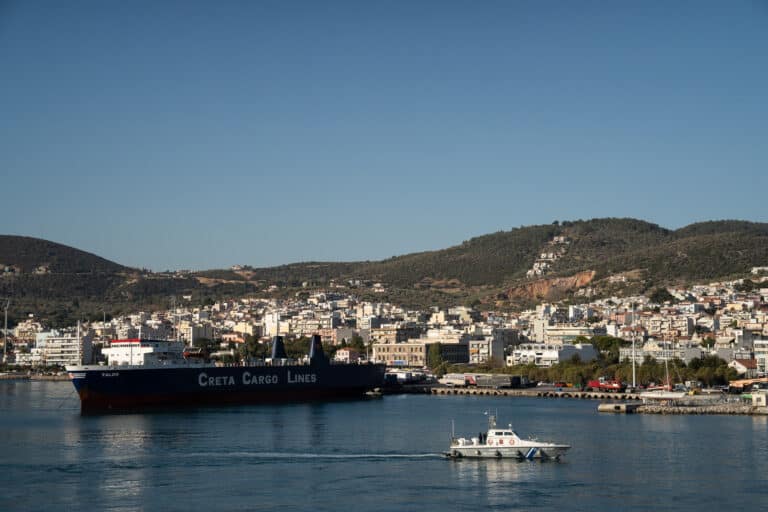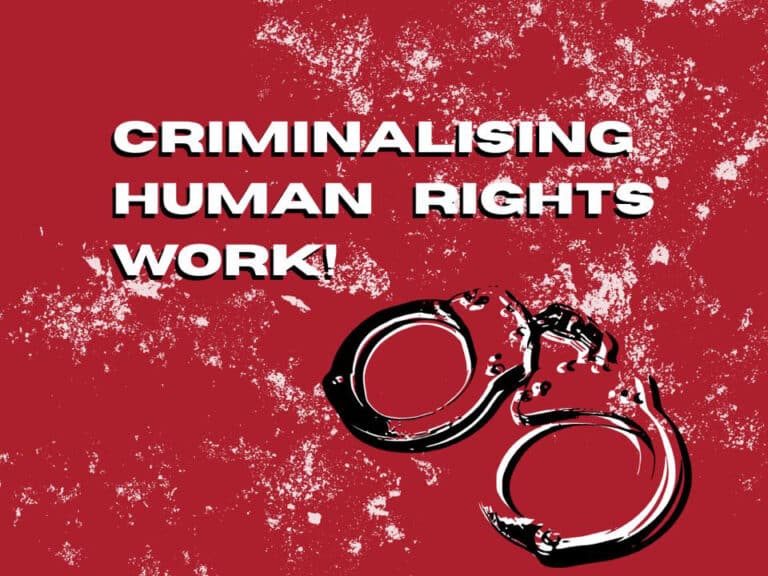I remember the trembling of my hands and the pounding of my heart as I was editing the final part of the film when the army arrests a child and drags him to the settlement. My colleague was filming while I followed the army, trying to gather information from the child, but the army had a strict order for him not to speak. I needed his name and age so I could reach his family and then contact various authorities to prevent his arrest. As I edited the scene, the tears started to flow. I called out loudly to my colleague to come and support me; I was on the verge of collapse, and even now, every time I recall the incident, it affects me.
I remember my fear as I filmed clandestinely while we entered the checkpoint and how they searched my colleague’s ID. I don’t know where I got the strength and courage to do that; my heartbeats were loud enough to reach the moon, but God gave me the strength to continue filming and stay calm. Thank God I wasn’t caught. I can’t imagine what would have happened if the camera had been discovered.
I remember when we planned to shoot the scene for Nisreen’s story and I went with my Italian colleague to film the area of Tel Rumeida, a heavily guarded area full of settlers and soldiers. My colleague went to film a certain area, but as a Palestinian, I couldn’t enter or see it. I wanted to see glimpses of the streets and the village that my grandparents used to tell me stories about. Unfortunately, we weren’t able to capture many scenes, and it ended with our detention.
This film is not just a compilation of videos and images; it’s a part of people’s daily struggle, which you will see is drawn with fear, tension and anxiety, intertwined with sacrifices and risks. On the other hand, it illustrates the love and laughter that kept us going, etches of care and concern for the suffering of others and how their stories have affected us. The film tells one story out of one million untold stories.
And most importantly, it illuminates our determination despite our limited capabilities and resources. We have been working on the film since February 2023. After a year of perseverance and challenges to complete the film, we managed to finish it, even though I almost lost my senses in the end. The only thing that remained was the light of hope which helped me believe that there is a sweet ending to every path.
We made this film to counter the dominant narrative. The oppressor is the one who always speaks and people around the world sit and listen, forgetting that the survivors did not have the opportunity to speak and share their pain and suffering. In this way, we tried to open space to listen to the victim, the one who continues to suffer.
I remember how my eyes welled up when I heard how Nisreen lost her husband because of the checkpoints and tear gas bombs. I cried when I saw Tareq talking about his uncle, a hero who was like an olive tree in front of every soldier. Haj Suleiman was present at every procession and demonstration, most notably the procession to open Shuhada Street. The film immortalizes the memory of these heroes and keeps us committed to seeking justice for Palestinians and their families like Nisreen and Tareq.
In a sad and painful country, with the continuous massacres from Gaza to Hebron to Jenin, every scream asks us to help stop the bloodshed. But after a while, the world forgets and continues on. We started our story from the massacre of Hebron, and we ended it with the dreams of Nisreen and Tareq. We depicted the charm of the old city and the beauty of the hills of Hebron, and through scenes of children, we showed that our story continues and our dream of freedom is unlimited and cannot be stopped.
I remember helping the community hide the cement after we had finished filming so that if the army came and demolished a house or a tent, they could build another one. Despite the power of the army and the support of the occupying countries, we’re not afraid, and we continue the work of our ancestors.
I may be biased because I’m from Hebron, because it’s my country, and my body is made from the goodness of the land, from the food and water that flows with love for the steward of the land. Even as I travel to other places, I will always know that my country Palestine and my city Hebron is the most beautiful place I’ve seen and the most beautiful thing in the world.
As the martyr Suleiman said, “either we live on this land with dignity or we die as martyrs under the ground.” From this land, we will not be displaced, nor will we be present in museums so that people remember us and know our story. Our story exists with our existence.
Finally, the film’s goal is not to cause despair but to ask you to support and stand by a people struggling against the colonizer and fighting against the oppressive system for generations. The light will remain, and our blood and bodies will be a way to narrate the land of our ancestors. As Mahmoud Darwish said, “Upon this land there is that which deserves life.”




